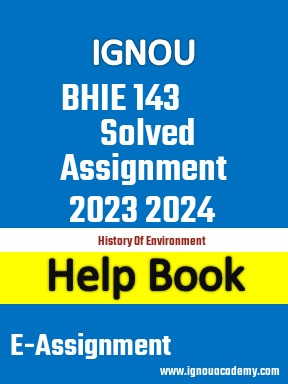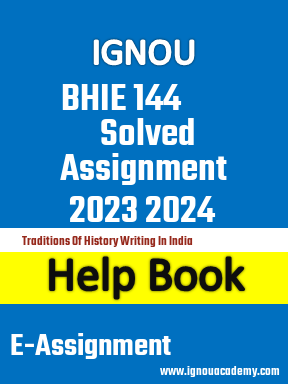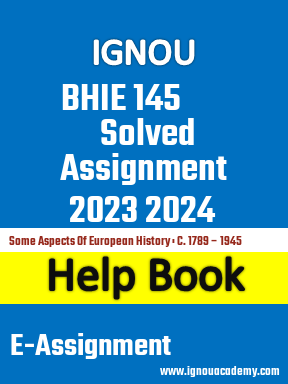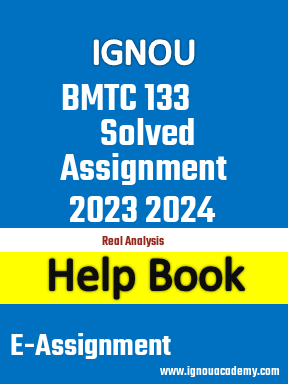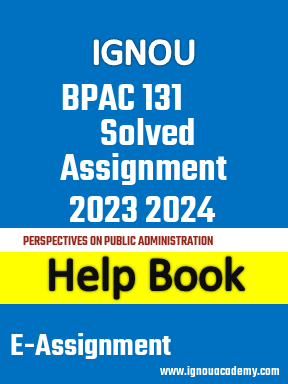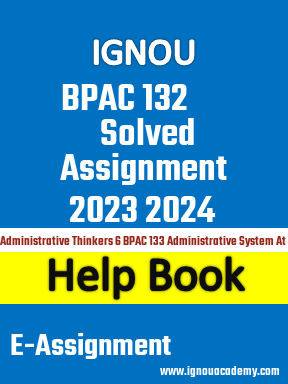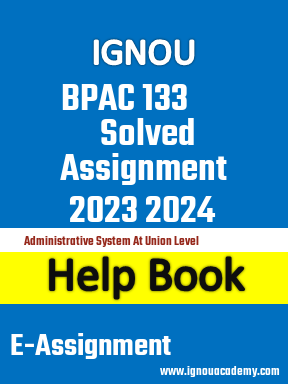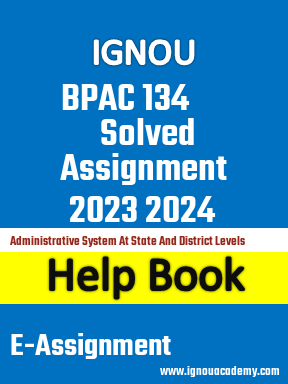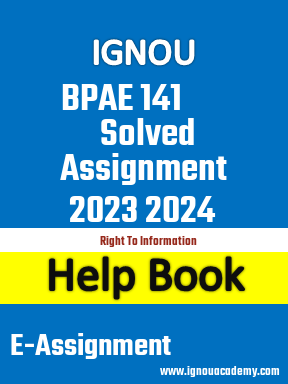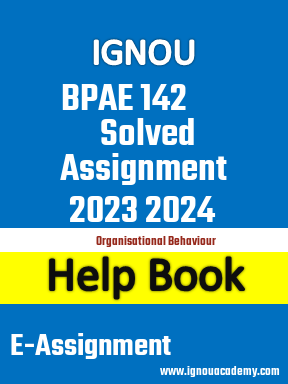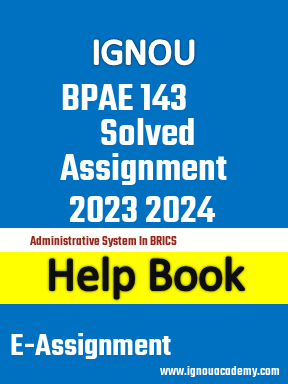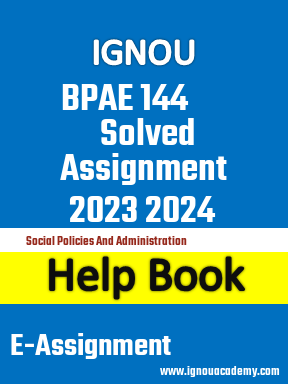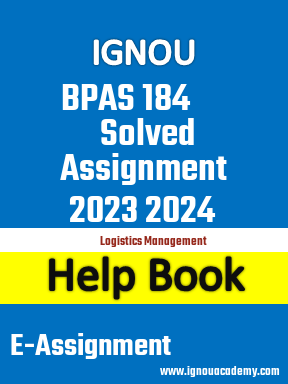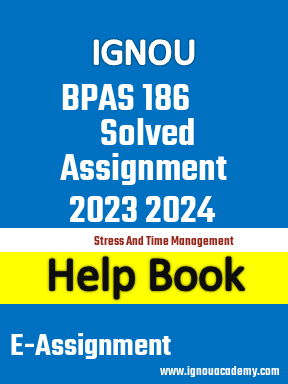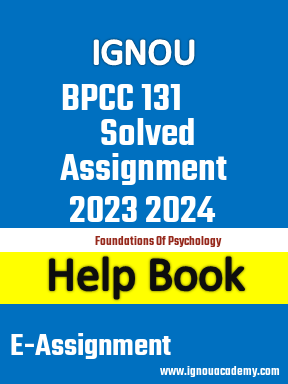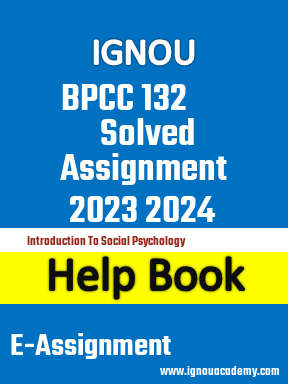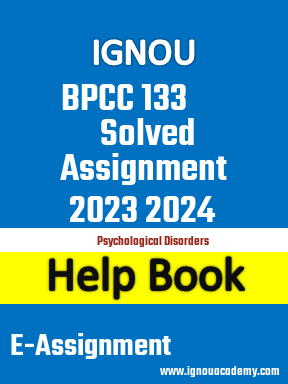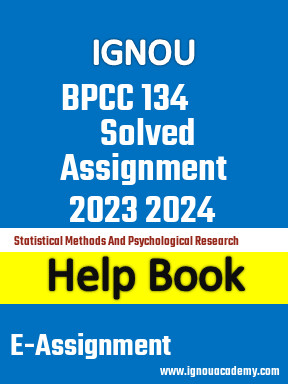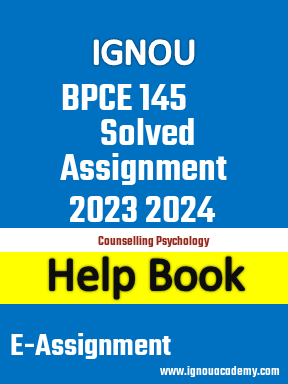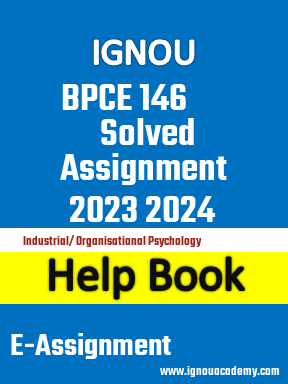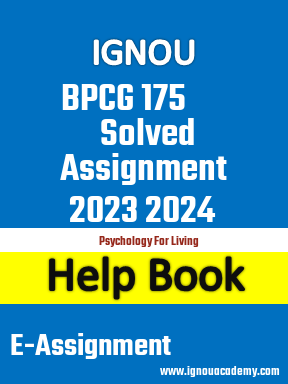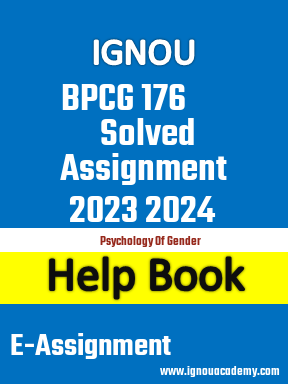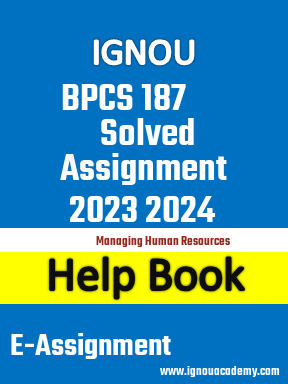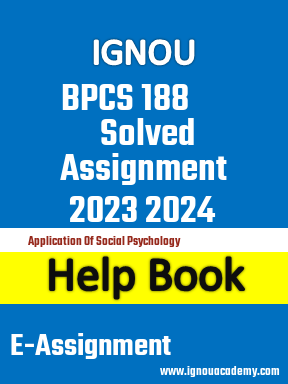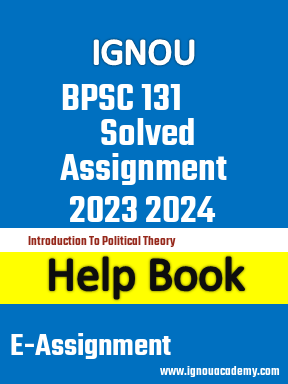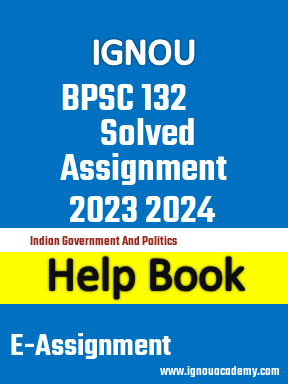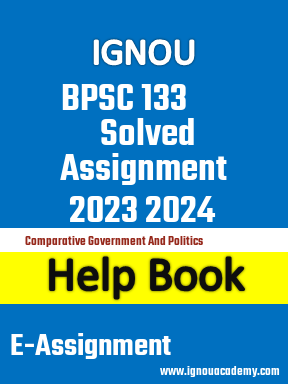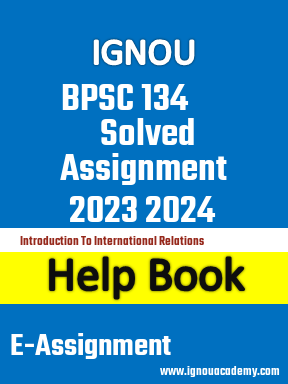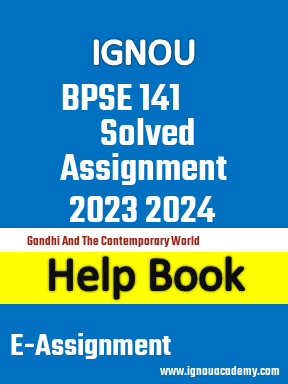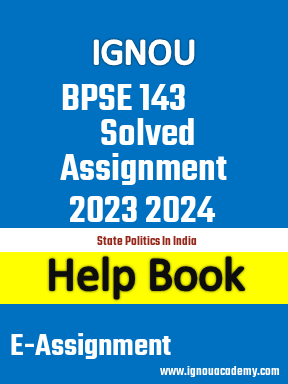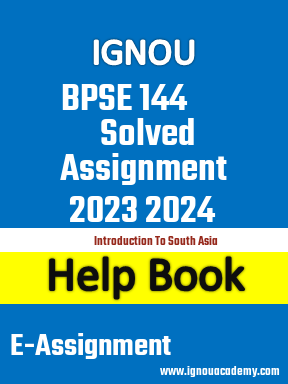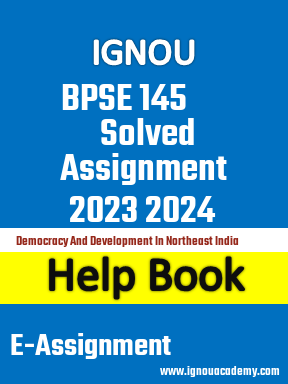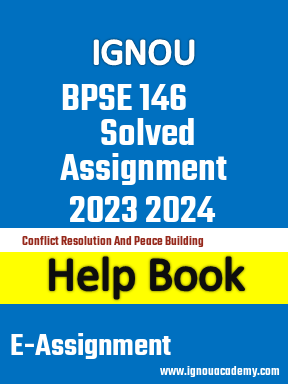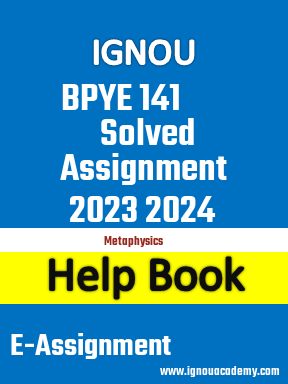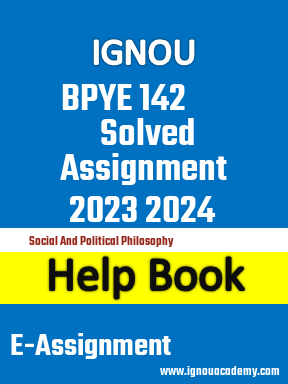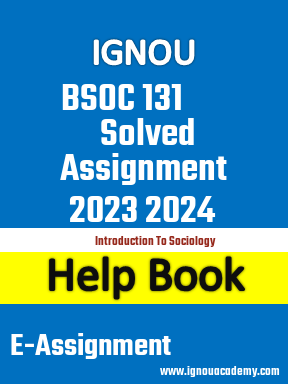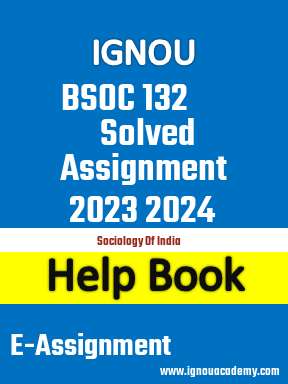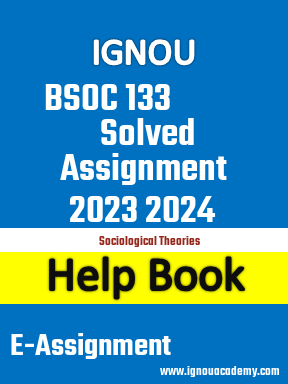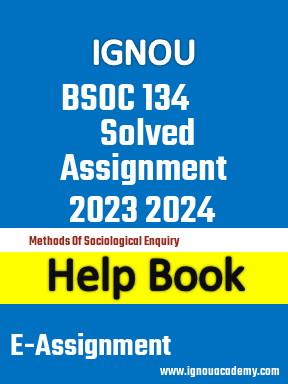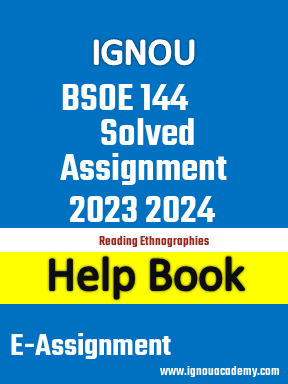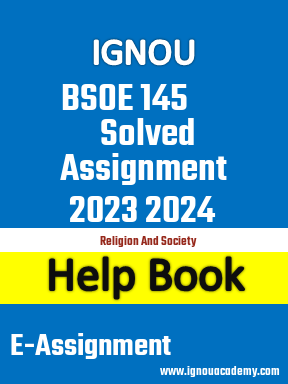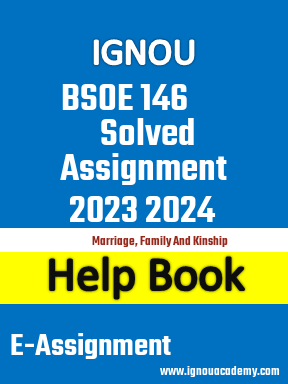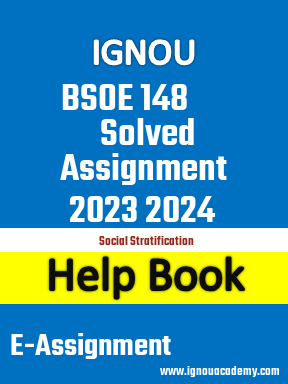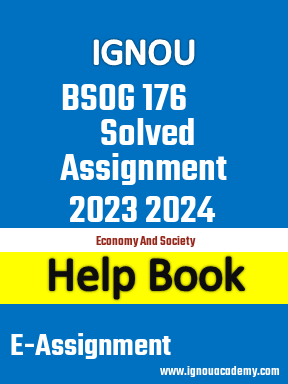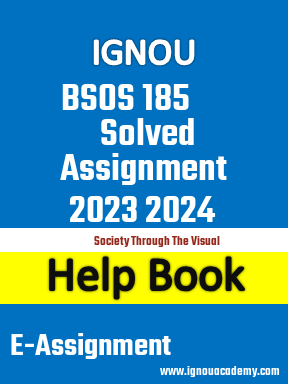My Cart
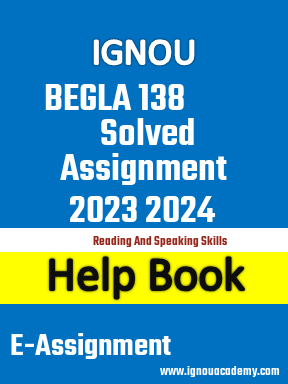
|
|
IGNOU BEGLA 138 Reading And Speaking Skills Solved Assignment 2023 2024
IGNOU BEGLA 138 Reading And Speaking Skills Solved Assignment 2023 2024|
|
| Title Name | IGNOU BAG BEGLA 138 2023 2024 Solution |
|---|---|
| Type | Soft Copy (E-Assignment) .pdf |
| University | IGNOU |
| Degree | BACHELOR DEGREE PROGRAMMES |
| Course Code | BAG |
| Course Name | BACHELOR OF ARTS |
| Subject Code | BEGLA 138 |
| Subject Name | Reading And Speaking Skills |
| Year | 2023 2024 |
| Session | JULY |
| Language | English Medium |
| Assignment Code | BEGLA-138/Assignmentt-1//2023-24 |
| Product Description | Assignment of BAG (BACHELOR OF ARTS) 2023-24. Latest BEGLA 138 2023-24 Solved Assignment Solutions |
| Last Date of IGNOU Assignment Submission | Last Date of Submission of IGNOU BEGLA-138 (BAG) 2023-24 Assignment is for January 2023 Session: 30th September, 2023 (for December 2023 Term End Exam). Semester Wise January 2023 Session: 30th March, 2024 (for June 2024 Term End Exam). July 2023 Session: 30th September, 2023 (for December 2023 Term End Exam). |
| Assignment Code | BEGLA 138/2023 2024/JULY |
|
|
Questions Included in this Help Book
Ques 1.
Nearly nine years ago, on a warm autumn evening in 1945, I was driving over the
mountains of Southern Japan to the city of Nagasaki. I thought I was still in open
country when all at once I realized that I was already crossing what had been the city.
The shadows which flickered past me in the dusk were not rocks and trees: they were
crushed buildings; the bare and skewed ribs of factories, and two crumpled gasometers.
The scale of the damage of Nagasaki drained the blood from my heart then, and does so
now when I speak of it. For three miles my road lay through a desert which man had
made in a second. Now, nine years later, the hydrogen bomb is ready to dwarf this scale,
and to turn each mile of destruction into ten miles. And citizens and scientists share at
one another and ask: ‘How did we blunder into this nightmare?
I put this first as a question of history, because the history of this is known to few
people. The fission of uranium was discovered by two German scientists a year before
the war. Within a few months, it was reported that Germany had forbidden the export of
uranium from the mines of Czechoslovakia which she had just annexed. Scientists on
the Continent, in England and America, asked themselves whether the secret weapon on
which the Germans were said to be working was an atomic bomb. If the fission of
uranium could be used explosively (and this already seemed possible in 1939) it might
in theory make an explosion a million times larger than hitherto. The monopoly of such
an atomic bomb would give Hitler instant victory, and make him master of Europe and
the world. The scientists knew the scale of what they feared very well: they feared first
desolation and then slavery. With heavy hearts, they told Albert Einstein what they
knew of atomic fission. Einstein had been a pacifist all his life, and he did not easily put
his conscience on one side. But it seemed clear to him that no scientist was free to keep
this knowledge to himself. He felt that no one could decide whether a nation should or
should not use atomic bombs, except the nation itself; the choice must be offered to the
nation, and made by those whom the nation has elected to act for it. On August 2, 1939,
a month before Hitler invaded Poland, Einstein wrote to President Roosevelt to tell him
that he thought an atomic bomb might be made, and he feared that the Germans were
trying to make one.
This is how it came about that, later in the war, scientists worked together in England, in
Canada and America, to make the atomic bomb. They hated war no less than the layman
does- no less than the soldier does; they, too, had wrestled with their consciences; and
they had decided that their duty was to let the nation use their skill, just as it uses the
skill of the solider or the expert in camouflage. The atomic scientists believed that they were in a race against Germany whose outcome might decide, the war even in its last weeks. We know now that the race was almost a walk-over. The Germans were indeed trying to make an atomic explosion, and they thought that they were ahead of the allies. But by our standards, what they had done was pitiful; they had not made a pile that worked, and they believed that the fast chain reaction of an atomic bomb was impossible. The Nazis had made fundamental science a poor relation, and put it under second rate party men with splendid titles. And more deeply, the Nazis had sapped the pith and power of research, the quizzical eye and questioning mind, the urge to find the facts for oneself. There were not enough unconventional ideas in the German atomic projects, and when the younger men did put up some, their leaders always knew better.
Ques 2.
What had drained the blood from the heart of the author?
Ques 3.
Describe the circumstances leading to the making of atom bomb.
Ques 4.
When was the Hydrogen bomb ready for use?
Ques 5.
What, according to the author, was the main reason of the failure of the German scientists?
Ques 6.
What do you learn from the passage about Albert Einstein?
Ques 7.
Read the following excerpt on the topic Smoking Kills. These lines are written in Persuasive style. (10) Smoking is injurious to health. It not only kills you but destroys the lives of your loved ones as well. Increase in the number of deaths due to lung cancer which is a result of smoking habit; has taken away so many people away from the ones who love them. It leaves a child fatherless and a partner without a support in this life. Now, attempt to write an argumentative paragraph on the same topic.
Ques 8.
How is communication disrupted when we choose an inferior medium? Exemplify with an instance from your own life.
Ques 9.
How can we ensure the conciseness of our messages while communicating? Explain with at least two examples.
Ques 10.
What is information overload? How does it affect communication?
Ques 11.
Consider the following domains:
Ques 12.
Playground, College canteen, College auditorium, Metro station Lecture hall, Father’s office, Multiplex, Police station, Hospital, Kitchen, Court room, Principal’s office. Classify them into formal and informal categories.
Ques 13.
The plan to evacuate the area won’t work out as there aren’t enough vehicles to drop everyone off at the safe zone.
Ques 14.
Rohit went ballistic after his brother cocked up his plan to attend the long-awaited event.
Ques 15.
I want this cleaned immediately
Ques 16.
I penalized some of the employees for being always late.
Ques 17.
Which of the above can be used in a formal conversation? Revise the ones which you feel cannot be used in a formal conversation.
Ques 18.
With respect to language and delivery in a formal conversation, what are the blunders that we need to avoid as speakers?
Ques 19.
With respect to language and delivery in a formal conversation, what are the blunders that we need to avoid as speakers?
Ques 20.
Explain how social context influences interpretation with at least two clear examples of informal use of English.
Ques 21.
Explain how linguistic context influences interpretation with at least two clear examples of informal use of English.
Ques 22.
Pair up with a good friend in your batch or in your locality. Imagine a situation in which your mother has given you the responsibility to go to the grocery store. You are busy with an incomplete assignment. Engage in an informal conversation in English with your friend, telling him or her to do the necessary on your behalf.
|
|
Related Assignments
IGNOU Doubts & Queries
Click to Contact Us
Call - 9199852182 Call - 9852900088 myabhasolutions@gmail.com WhatsApp - 9852900088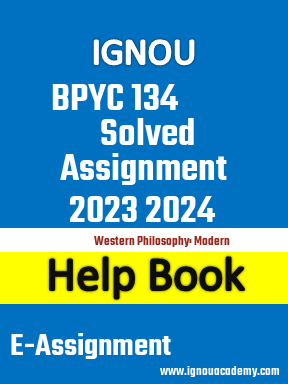
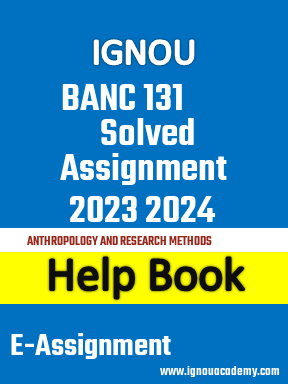
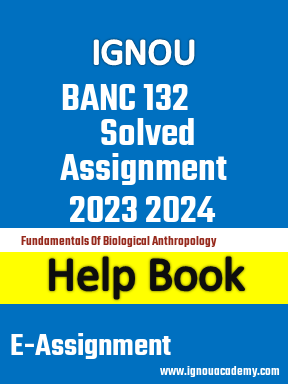
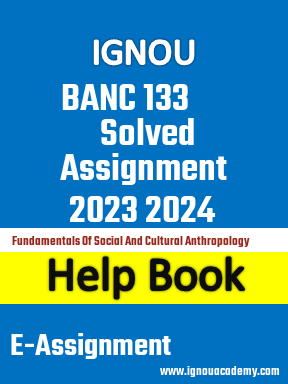
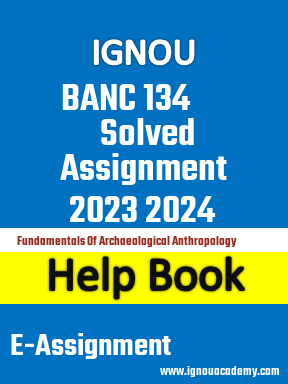
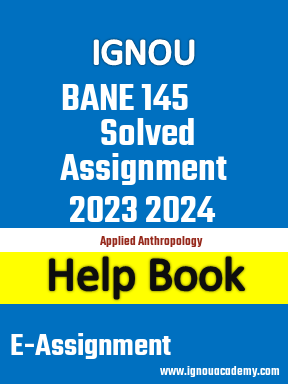
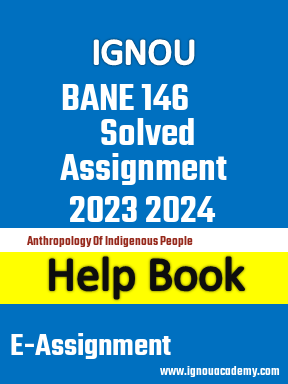
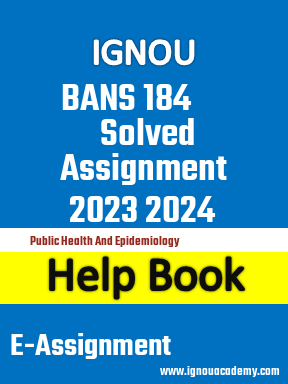

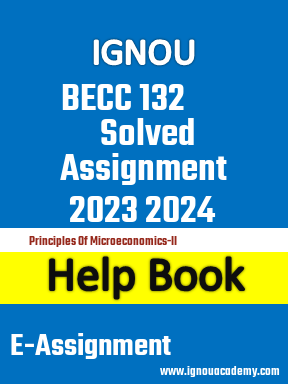
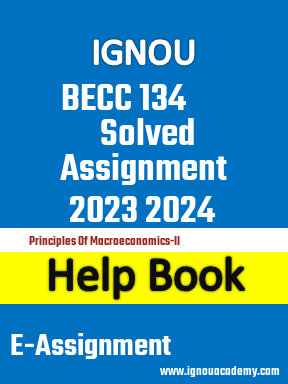
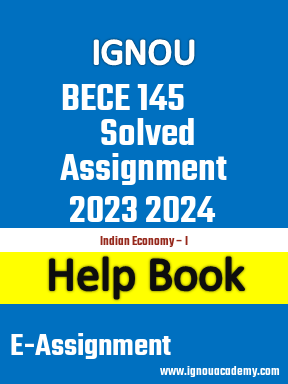
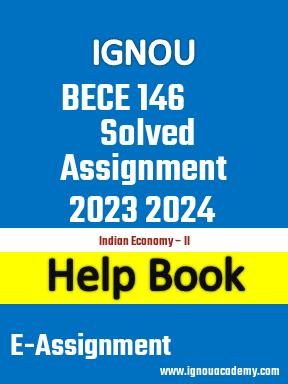
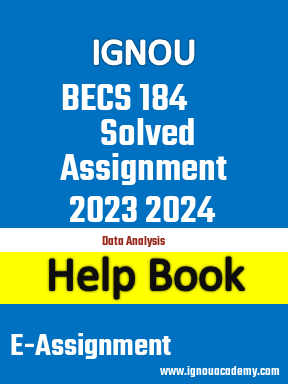
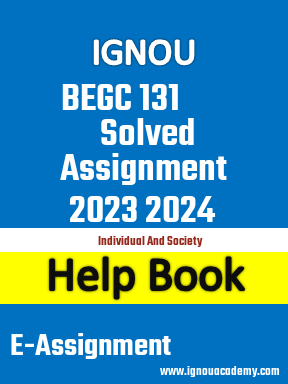

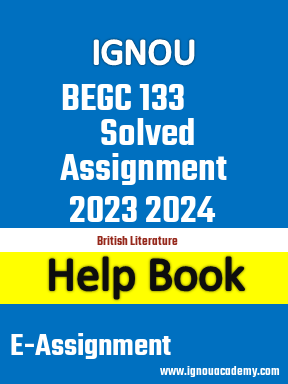
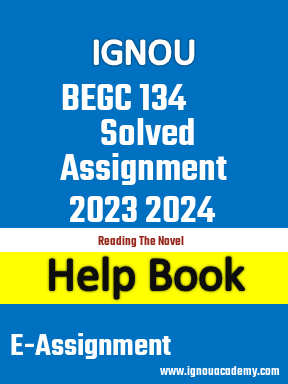
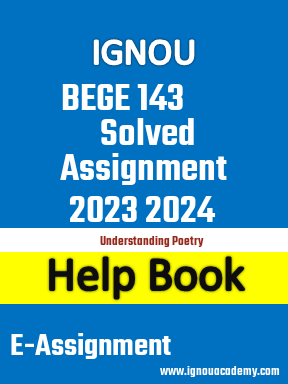
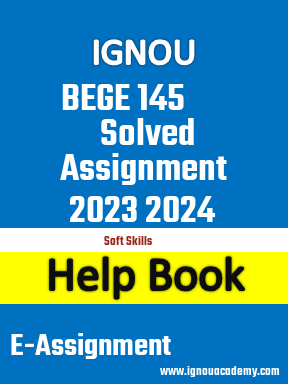
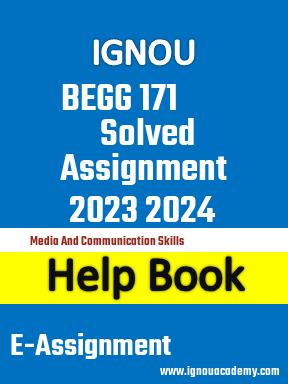

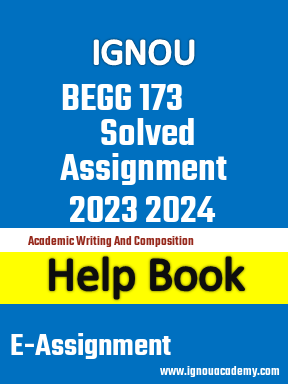
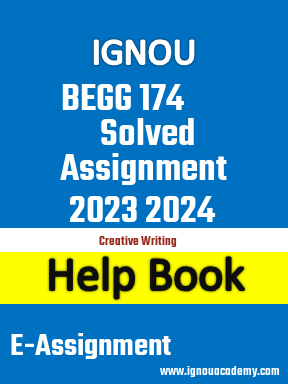
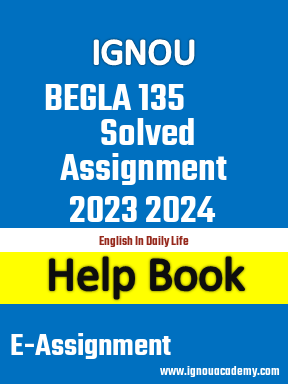
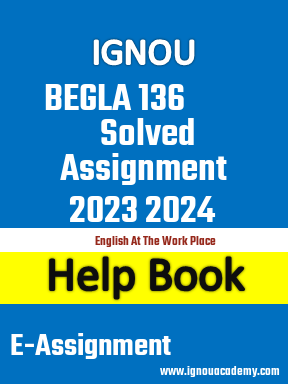
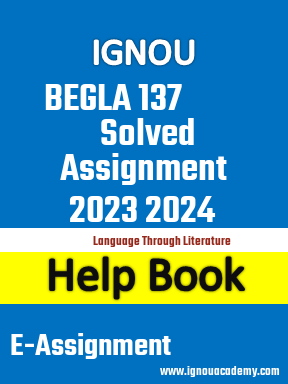

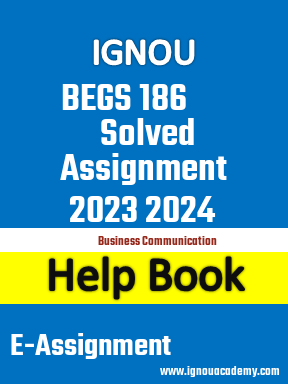
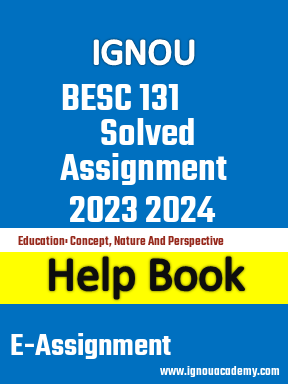
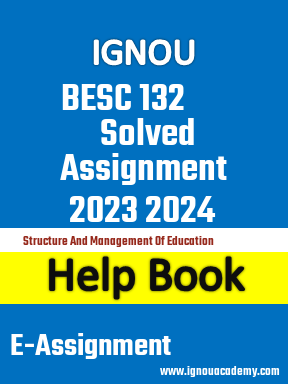
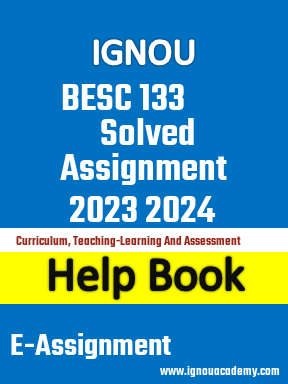
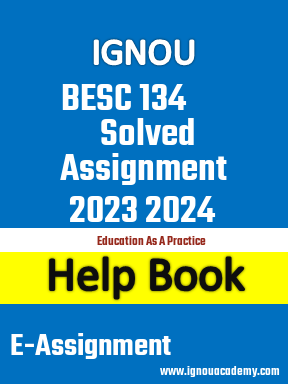
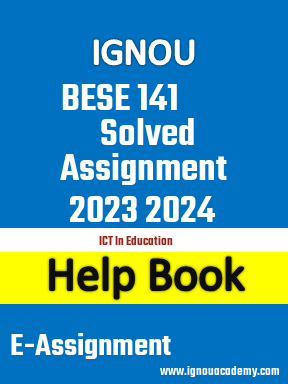
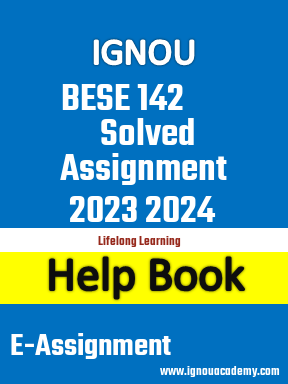
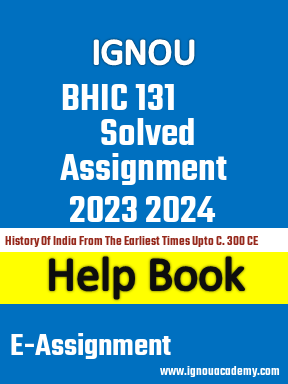
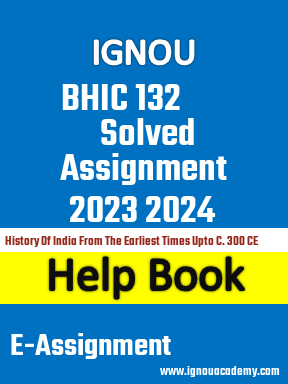
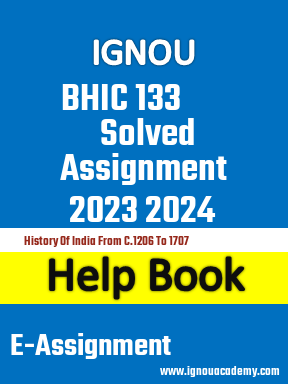
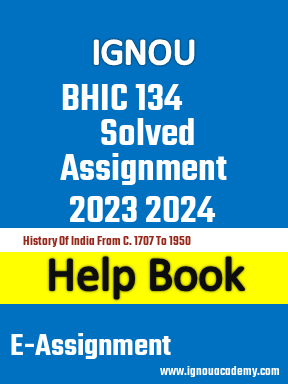
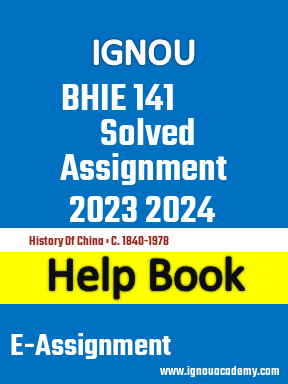
&y=&topic=&dl=&k=.png)
